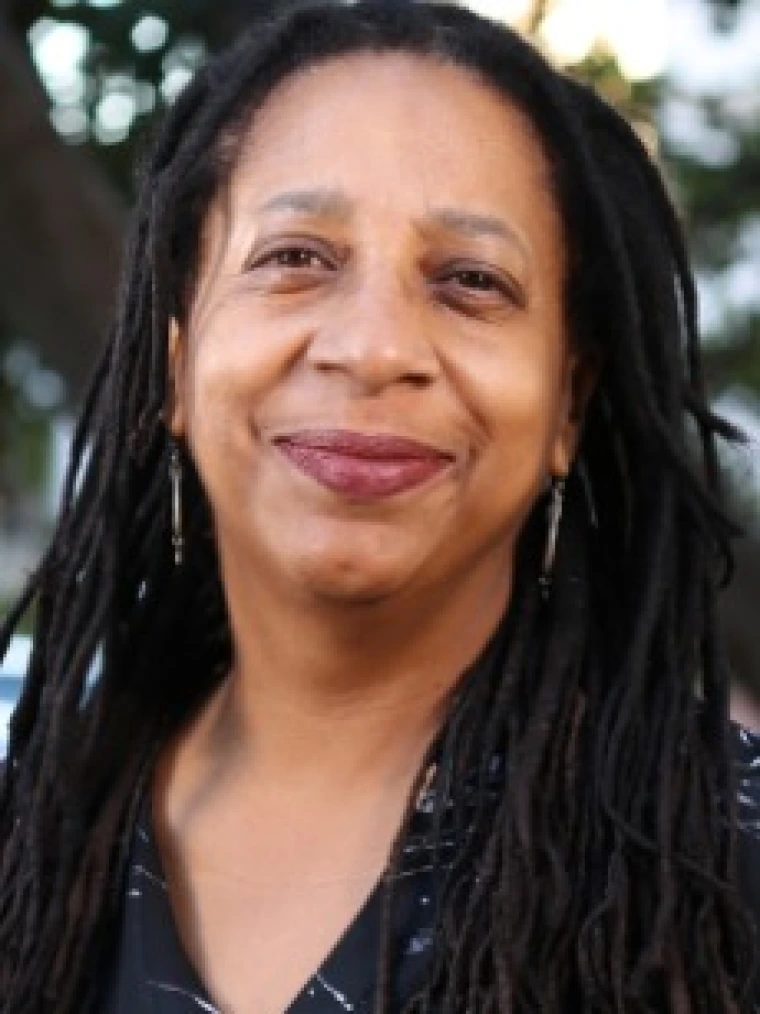Tani Sanchez, Ph.D.

Learning Services Building
Links
Dr. Sanchez is primarily interested in racial representations in the media and in the study of African American history and culture. She worked for a number of years as an editor, broadcast journalist and as a media information specialist. She is also the first president of the Tucson Chapter Afro-American Historical and Genealogical Society (founded by Gloria Smith), an active member of the Tucson Black Film Club and is a member of the Womens Progressive and Civic Club. She has served as a State President of the National Association of Colored Women’s Clubs. Dr. Sanchez has a doctorate in Comparative Cultural and Literary studies; her masters degree focused on visual culture/art history while her undergraduate studies included Radio and Television.
She has lectured in Tucson and other cities on Black history, racial representations in film, and on African American family history and genealogy. Her wide-ranging background in broadcast and written journalism as well as in public affairs has included overseas assignments in the U.S. Army and a stint in the Arizona National Guard. Her academic writings have been published in two anthologies; she has created political videos and has written and edited books and newsletters for community based associations. In addition to classes in Africana Studies, Dr. Sanchez has also taught art history and art appreciation courses.
She believes, “It is especially important for people to be educated in Africana studies subjects because our everyday lives are heavily influenced by racism and the impact of centuries of colonialism. However, many people are not exposed to the insightful types of analysis that comes from the view point of the subjugated. Some students believe learning about race and the history of it in America perpetuates racism. I sometimes hear them say ‘if you just don’t talk about it, it will go away’ or they say discussing racial history creates racism and bad feelings. But if racial problems and their origins are simply ignored, long-standing continuing oppression will persist. Many will continue to perceive ordinary, everyday discriminatory practices as normal, not realizing how they affect others. They won't understand the impact on our collective lives or how we can all, regardless of race, participate in something that is oppressive or liberating. The disparity in wealth among races is just one of many statistics clearly indicating something is clearly out of balance! We need black theoretical perspectives and a more complete history factored into our learning.
She adds, "How can anyone critically assess what is happening today in our society and find solutions with only a portion of the picture?”
